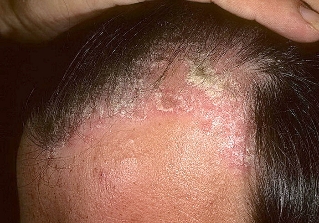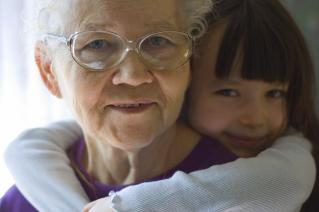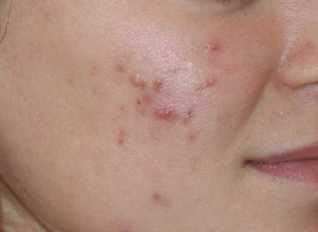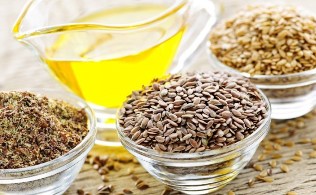There are a huge number of dermatological diseases. One of the most common skin diseases – psoriasis. Treatment of psoriasis is a very relevant topic in modern medicine. Thousands of pharmaceutical companies are daily releasing new tools for getting rid of this disease, but today there is no medicine that can once and for all eliminate the disease. In this article, find out all about psoriasis and its treatment, and also we will try to answer such common questions as what to do for psoriasis how to get rid of psoriasis and also is it possible to cure psoriasis once and for all.

What is psoriasis
The disease refers to diseases of noninfectious nature, which cannot be transferred to household, sexual, airborne, or in any other way. Many patients believe that this disease affects only the skin, but it is not. The disease has several types, which can occur not only on the skin, and have a negative impact on the nails, joints and some internal organs.
So what is psoriasis. The person with healthy skin the cycle of maturation and division of skin cells is about 28 to 30 days psoriasis this period is reduced tenfold and is only 4-6 days. Because of this still-immature cells begin to divide and wither away, resulting on the skin and form a nasty white or grayish scales. Scientists around the world still can't figure out the exact reasons why this process occurs. Only a few known triggers that can cause relapse and aggravation of the disease.
The disease can occur in men, women and even children. According to some statistics it is known that more prone to the disease people who live in countries with cold and humid climate. Also at risk are young people aged 18 to 25 years of age and older patients after 45-50 years of both sexes. Few children get sick less and their pathology can occur in atypical form, there are those without the characteristic symptoms of psoriasis such as scales, itching and flaking.
Dangerous than the disease
Do not assume that in addition to aesthetic problems psoriasis is not able to cause serious harm to the body. Symptoms such as itching, redness, peeling is only a small part of what can provoke this disease. Experts say that many patients often develop this form of the disease like psoriatic arthritis. This is a serious joint damage and cartilage, which may even lead to disability. Also to complications of psoriasis may include the following symptoms:

- Defeat and deformity of the nails.
- The mucosal. It can also be diseases of the bladder and urethra.
- On the background of pathology can develop serious diseases of the gastric mucosa.
- Often suffers the liver, it increases in size and ceases to perform its functions.
- In addition, patients often arise complications such as seizures, depression, delirium, polyneuritis, and many other psychological disorders.
- Among the common complications of persistent muscle and joint pain, excessive weight loss.
- There have been cases of myocardial infarction, stroke, heart failure and other diseases.
- Often, enlarged lymph nodes, especially in the crotch area and hips.
These are just some of the consequences that can result from the disease. The list goes on and on, but without this it is clear that psoriasis is a severe disease that require serious and timely treatment.
The reasons for the development of the disease
At the present stage of studies of psoriasis scientists and medical experts failed to come to a common opinion about the exact reasons of the disease development. Representatives of various theories adhere to points of view that explain the possible causes of pathologically rapid skin cell division. Next, we consider the most popular theory of the development of the disease.
Genetic
The other point of view is the genetic theory. Her supporters believe that psoriasis is inherited. According to medical statistics, more than 50% of all patients suffering from pathology, disease suffered by one of the parents. In addition, if the mother or father suffer a disease, the risk of development of psoriasis in a child increases by 25% if similar disease suffer both parents, the risk increases more than 50%.
Endocrine
Hormonal balance of the body plays a very important role. The endocrine system, which consists of such organs as the thyroid, pancreas and pituitary gland, is fully responsible for the balance of the hormones. Diseases and malfunctions of these organs can lead to hormonal imbalance, which, in the opinion of the supporters of the endocrine theory and leads to the development of unhealthy cells of the dermis.
Imbalance can often arise during puberty, the menstrual cycle and menopause, as well as in the treatment of hormonal means and under the influence of some other reasons.
It is important to note that in terms of modern research it does not prove the effect of hormones on the occurrence of psoriasis, so this theory remains only speculation.

Neurogenic
This is one of the young theories, which believe that the appearance of the disease may occur due to severe stress and psychosomatic disorders. The theory is also not proven, its supporters are conducting research to this day.
The occurrence of the disease neurogenic theory explains the development of vasomotor neurosis in the walls and muscles of the blood vessels. This process can cause narrowing of the vascular walls, resulting in greatly reduced blood circulation.
The theory is also not proven, but many studies confirm the fact that most patients psoriasis exacutus or have arisen for the first time after severe emotional stress and worries.
Main types and symptoms of psoriasis
Symptoms of psoriasis can be very diverse. Its manifestations depend on the type of disease. Forms of psoriasis in the medical practice is divided into the following types.
Psoriasis of the scalp
This is one of the most common types. Many patients have encountered this problem and know how unpleasant this condition. Does heal psoriasis of the head? Definitely not, like others of his species. Disease manifests itself in each patient differently. This may be a slight rash in the area of hairline that are accompanied by flaking and dandruff, and can manifest disease large plaques with rough crusts, and significant redness.
To treat psoriasis this type of need, strongly desirable to let the disease go.
Nail psoriasis
Faced with this type of disease patients is concerned, it is treated psoriasis. After all, pathology is not only much spoils the aesthetic appearance clavum plates, and leads to a strong distortion, delamination, and even complete loss. Developing this kind of disease is most often compared to other types of the disease and requires a comprehensive and correct treatment.
The fight against psoriasis of the nails is often in an integrated approach and a fairly long-term treatment. The patient should have patience to achieve positive results.
Psoriasis of the hands
Hand, namely the palm is highly susceptible to various mechanical damage and friction. Often, this disease occurs both in men and women. The main manifestations of psoriasis on hands appear calloused education with the flaking, itching and redness. The disease is aggravated by frequent injuries of the skin, as the palm is very moving.
Psoriasis on the face

The appearance of lesions on the face is a very unpleasant as this area is always visible. Patients are puzzled about how to overcome psoriasis of the face. After all, ugly gluma plaque not only deliver severe discomfort on a physical level, but also significant deterioration of the emotional state. Illness of this type can esse versatum on any area of the face: cheeks, nose, lips, forehead and chin. The treatment of depriving flake on the face (so often referred to as psoriasis) complex and molestum process.
Psoriasis on the feet
Is very similar to disease on the hands. This form can affect the inner thighs, knee-joints, rarely the feet. Characteristic symptoms are itching, flaking and inflammation.
Psoriasis elbows
Common pathology, found in many patients of different age groups. Affects the outer surface of the elbows. Externally, the disease resembles the appearance on the skin niveus or grayish film in the form of so-called shell. Elbow psoriasis cure is not a difficult, and often has a favorable prognosis for the patients.
Psoriasis vulgaris
The most mild form of the disease. While in the skin of the patient there are individual plaques that pose little discomfort for the patient. Psoriasis vulgaris can be treated by means of local application and adherence to simple preventive measures.
Psoriasis on the genitals
Genital disease is quite rare. Almost in 99% of cases is not an independent disease. Often the disease is confused with many sexually transmitted diseases, and consult a dermatologist patients are not in a hurry. The men struck the head of the penis in women, the disease spreads to the labia.
Important! Not worth it to try to establish the diagnosis. Often one form of psoriasis goes into another. To make a diagnosis and prescribe treatment can only a doctor.
Methods of treatment of psoriasis
Most patients faced with this disease have no idea how to get rid of psoriasis. In addition, people simply do not know whether to be treated this pathology. Later in the article we will try to understand, what methods of treatment of the disease and treatment of psoriasis.
Before starting treatment, each patient must remember that psoriasis is incurable. Treatment is always aimed solely at addressing the symptoms, strengthening the immune system, and to achieve stable remission.
Methods for the treatment of psoriasis are quite diverse and consist in the use of the following methods:
Medication
Psoriasis and its treatment is a complex and lengthy process. In medical practice using a graded approach that ensures the achievement of the desired result, which persists for a long time. This approach includes the following steps:
The doctor picks up the funds, depending on the severity of the patient and characteristics of the disease.

During exacerbation of the disease the doctor may recommend the patient a certain kind of cyclic therapy. It consists in the use of drugs over a long period to prevent serious complications and side effects. Treatment of psoriasis can look like the following:
In most cases after cyclic therapy is the long-awaited relief and remission.
Drugs for external use in psoriasis
It is very common for relieving itching, inflammation, redness and other symptoms of disease in medical practice, use of funds intended for external application. This group includes medications that are available in the form of ointments, gels, lotions, sprays, shampoos, etc.
The use of such drugs is indicated for mild and moderate form of disease. In cases of severe disease, such drugs are often prescribed in combination with more powerful means.
The specialist picks up medicines, given the disease burden and the individual characteristics of the patient. Treatment of psoriasis with topical treatments can be used in patients of different age groups and give minimum side effects.
Alternative treatments of psoriasis
In addition to traditional therapy methods of the treatment alternative nature. Very often in practice, the unconventional treatment gives the most unexpected results. Thus, how to treat psoriasis alternative methods will be discussed further.

Ichthyotherapy
This is a relatively new method that is performed with little fish Garra rufa. Is this type of therapy in sanatoriums, where there are sources. The session is very simple. The person is immersed in water with fish, and they, in turn, purify the body from the coarsened particles of the skin and scales completely without affecting healthy areas.
Treatment with clay and mud
Very good cleans the skin from the plaques mud. Often used, for example, the mud caught in the lake Sivash. It can be purchased at the pharmacy. For applying the mud is heated to a temperature of 38-39 degrees and is applied in a thin layer on the affected areas. After 30-40 minutes, wash off the mask with warm water and applied to the skin soothing cream.
Plasmapheresis
As already known, one of the main causes of psoriasis is a metabolic processes in the body. Because of the violation of metabolic balance is accumulated in the body such negative products, such as waste, toxins, and radicals. These components have a very negative impact on the entire body, poisoning it from the inside. Blood transfusion in psoriasis is one of methods of struggle with the disease. For this purpose, a centrifuge (plasmapheresis). Using this method you can purge the blood of a patient from harmful substances, and pathogenic viruses and fungi. Thanks plasmapheresis it is possible to achieve the following purposes:
- cleansing the blood;
- improvement of microcirculation;
- the elimination of inflammation;
- eliminate decay products and other harmful components.
Traditional methods of treatment of the disease
Cleansing the body psoriasis is often carried out with the help of folk remedies. With these goals use a variety of natural products and herbs. Thus, how to treat psoriasis using traditional methods will understand later in the article.
All therapies can be divided into drugs for the domestic reception, as well as means for external application.























